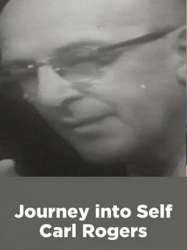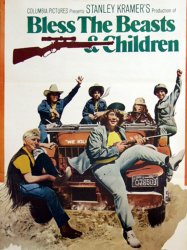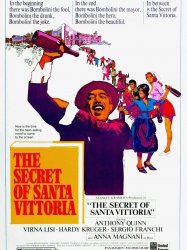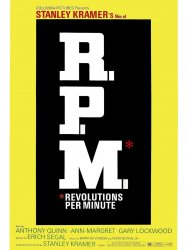Stanley Kramer is a Actor, Director, Producer and Presenter American born on 29 september 1913 at New York City (USA)

Stanley Earl Kramer (September 29, 1913 – February 19, 2001) was an American film director and producer, responsible for making many of Hollywood's most famous "message movies", and becoming one of the nation's most respected filmmakers. As an independent producer and director, he distinguished himself and his films by bringing attention to topical social issues that most studios avoided. Among the subjects covered in his films were racism, nuclear war, greed, creationism vs. evolution and the causes and effects of fascism.
Despite the controversial subjects of his films, many of which received mixed reviews, the film industry nonetheless recognized their importance and quality during most of his career, awarding his films sixteen Academy Awards and eighty nominations. He was nominated nine times as either producer or director.
His notable films include High Noon (1952, as producer), The Caine Mutiny (1954, as producer), The Defiant Ones (1958), On the Beach (1959), Inherit the Wind (1960), Judgment at Nuremberg (1961), It's a Mad, Mad, Mad, Mad World (1963), Ship of Fools (1965) and Guess Who's Coming to Dinner (1967). After a string of unsuccessful productions in the 1970s, he retired from films.
Director Steven Spielberg described him as an "incredibly talented visionary," and "one of our great filmmakers, not just for the art and passion he put on screen, but for the impact he has made on the conscience of the world." Kramer was recognized for his fierce independence as a producer-director, with author Victor Navasky writing that "among the independents . . . none seemed more vocal, more liberal, more pugnacious than young Stanley Kramer." Kramer agreed: "I tried to make movies that lasted about issues that would not go away."
In 1961 he received the Irving G. Thalberg Memorial Award. In 1963 he was a member of the jury at the 3rd Moscow International Film Festival. In 1998 was awarded the first NAACP Vanguard Award "in recognition of the strong social themes that ran through his body of work." In 2002, the Stanley Kramer Award was created, to be given to recipients for work that "dramatically illustrates provocative social issues.
Kramer a étudié au lycée DeWitt Clinton dans le Bronx , où il a obtenu son diplôme à quinze ans. Il s'est ensuite inscrit à l'Université de New York, où il est devenu membre de la fraternité Pi Lambda Phi et a écrit une chronique hebdomadaire pour le journal Medley . Il a obtenu son diplôme en administration des affaires en 1933, à l'âge de dix-neuf ans. Selon le biographe Donald Spoto , après avoir développé un "goût pour l'écriture" avec le journal, il s'est vu proposer un stage rémunéré dans le département d'écriture de la 20th Century Fox et a déménagé à Hollywood. Jusqu'à ce poste, il avait prévu de s'inscrire à la faculté de droit
 (1963)
(1963)
(Director) (1967)
(1967)
(Director) (1961)
(1961)
(Director) (1952)
(1952)
(Producer) (1965)
(1965)
(Director) (1949)
(1949)
(Producer)
Source : Wikidata
Stanley Kramer

- Infos
- Photos
- Best films
- Family
- Characters
- Awards
Birth name Stanley Earl Kramer
Nationality USA
Birth 29 september 1913 at New York City (USA)
Death 19 february 2001 (at 87 years) at Woodland Hills (USA)
Nationality USA
Birth 29 september 1913 at New York City (USA)
Death 19 february 2001 (at 87 years) at Woodland Hills (USA)
Despite the controversial subjects of his films, many of which received mixed reviews, the film industry nonetheless recognized their importance and quality during most of his career, awarding his films sixteen Academy Awards and eighty nominations. He was nominated nine times as either producer or director.
His notable films include High Noon (1952, as producer), The Caine Mutiny (1954, as producer), The Defiant Ones (1958), On the Beach (1959), Inherit the Wind (1960), Judgment at Nuremberg (1961), It's a Mad, Mad, Mad, Mad World (1963), Ship of Fools (1965) and Guess Who's Coming to Dinner (1967). After a string of unsuccessful productions in the 1970s, he retired from films.
Director Steven Spielberg described him as an "incredibly talented visionary," and "one of our great filmmakers, not just for the art and passion he put on screen, but for the impact he has made on the conscience of the world." Kramer was recognized for his fierce independence as a producer-director, with author Victor Navasky writing that "among the independents . . . none seemed more vocal, more liberal, more pugnacious than young Stanley Kramer." Kramer agreed: "I tried to make movies that lasted about issues that would not go away."
In 1961 he received the Irving G. Thalberg Memorial Award. In 1963 he was a member of the jury at the 3rd Moscow International Film Festival. In 1998 was awarded the first NAACP Vanguard Award "in recognition of the strong social themes that ran through his body of work." In 2002, the Stanley Kramer Award was created, to be given to recipients for work that "dramatically illustrates provocative social issues.
Biography
Stanley Kramer est né à Manhattan, dans l’État de New York, dans un quartier connu sous le nom de Hell's Kitchen, en raison de sa réputation de zone difficile, ravagée par les gangs. Ses parents étaient juifs et s’étant séparés très tôt, il ne se souvenait guère de son père. Sa mère travaillait dans un bureau de Paramount Pictures à New York , période pendant laquelle ses grands-parents s'occupaient de lui à la maison. Son oncle, Earl Kramer, travaillait dans la distribution chez Universal Pictures .Kramer a étudié au lycée DeWitt Clinton dans le Bronx , où il a obtenu son diplôme à quinze ans. Il s'est ensuite inscrit à l'Université de New York, où il est devenu membre de la fraternité Pi Lambda Phi et a écrit une chronique hebdomadaire pour le journal Medley . Il a obtenu son diplôme en administration des affaires en 1933, à l'âge de dix-neuf ans. Selon le biographe Donald Spoto , après avoir développé un "goût pour l'écriture" avec le journal, il s'est vu proposer un stage rémunéré dans le département d'écriture de la 20th Century Fox et a déménagé à Hollywood. Jusqu'à ce poste, il avait prévu de s'inscrire à la faculté de droit
Best films
 (1963)
(1963)(Director)
 (1967)
(1967)(Director)
 (1961)
(1961)(Director)
 (1952)
(1952)(Producer)
 (1965)
(1965)(Director)
 (1949)
(1949)(Producer)
Usually with
Filmography of Stanley Kramer (38 films)
Actor
 , 1h41
, 1h41Directed by Stanley Kramer, Lee Bernhardi
Origin USA
Genres Drama, War, Crime
Actors Richard Basehart, Harrison Ford, Linda Haynes, Bo Hopkins, William Lucking, Tony Musante
Roles Host
Rating59%





Aux États-Unis, le lieutenant William Calley passe en cour martiale à cause de sa participation au massacre de Mỹ Lai durant la Guerre du Viêt Nam où de nombreux civils innocents ont été exécutés. Les témoignages contradictoires vont confronter les juges aux complexes tactiques militaires auxquelles les combattants ont été eux-mêmes soumis et amenés à commettre les pires atrocités…

Journey Into Self (1969)
, 47minutesOrigin USA
Genres Documentary
Themes Medical-themed films, Documentary films about health care, Films about psychiatry
Actors Stanley Kramer
Roles lui-même
Rating64%





Les docteurs Carl Rogers et Richard Farson mènent une séance de thérapie de groupe avec huit personnes: parmi eux trois hommes d'affaires, un étudiant en théologie, un professeur, un directeur d'école, une femme au foyer et un employé.
Director

The Runner Stumbles (1979)
Directed by Stanley Kramer
Origin USA
Genres Drama
Themes Films about religion
Actors Dick Van Dyke, Kathleen Denise Quinlan, Maureen Stapleton, Ray Bolger, Tammy Grimes, Beau Bridges
Rating61%





The film is set in 1911 at a Roman Catholic parish in the rural town of Isadore, Michigan. Sister Rita (Quinlan), a young nun, arrives at the parish to help run the church school. When the parish's two elderly nuns contract tuberculosis, Sister Rita is forced to move into the rectory that is home to Father Rivard (Van Dyke), the parish priest. The close proximity between the two begins to set off gossip and suspicions, to the point that a monsignor from the diocese (Bolger) comes to give Father Rivard a talking-to. The gossip turns out to be correct, as the priest and the nun confess their love for each other. However, their declaration of emotion leads to tragedy.

The Domino Principle (1977)
, 1h37Directed by Stanley Kramer
Origin USA
Genres Drama, Thriller, Crime
Themes Political films
Actors Gene Hackman, Candice Bergen, Mickey Rooney, Richard Widmark, Edward Albert, Eli Wallach
Rating57%





Roy Tucker (Gene Hackman), serving time for the murder of his wife's first husband, is approached in prison by a man named Tagge (Richard Widmark) on behalf of a mysterious organization with an offer: in exchange for helping him escape and start a new life, Tucker must work for the organization for a few weeks. Following his escape with cellmate Spiventa (Mickey Rooney)—whom the organization immediately kills—Tucker flies to Puntarenas, Costa Rica where he is reunited with his wife Ellie (Candice Bergen). After a few idyllic days, the organization's Tagge, Pine (Edward Albert) and General Reser (Eli Wallach) return them to Los Angeles. There the details of his mission slowly unfold. He realizes he is expected to assassinate someone and refuses. The organization retaliates by kidnapping his wife.
 , 1h41
, 1h41Directed by Stanley Kramer, Lee Bernhardi
Origin USA
Genres Drama, War, Crime
Actors Richard Basehart, Harrison Ford, Linda Haynes, Bo Hopkins, William Lucking, Tony Musante
Rating59%





Aux États-Unis, le lieutenant William Calley passe en cour martiale à cause de sa participation au massacre de Mỹ Lai durant la Guerre du Viêt Nam où de nombreux civils innocents ont été exécutés. Les témoignages contradictoires vont confronter les juges aux complexes tactiques militaires auxquelles les combattants ont été eux-mêmes soumis et amenés à commettre les pires atrocités…

Oklahoma Crude (1973)
, 1h48Directed by Stanley Kramer
Origin USA
Genres Drama, Comedy, Comedy-drama, Western
Actors George C. Scott, Faye Dunaway, John Mills, Jack Palance, William Lucking, Harvey Jason
Rating62%





Set in the early 20th century, the film is about a lone woman, Lena Doyle (Faye Dunaway) who finds herself threatened by tough businessmen who want to take her land which possesses shares of crude oil. Rather than settle and sell the land she rightfully owns, Lena decides to fight and to do this, she asks for the help of her father (John Mills) and a hired gun named Mason (George C. Scott).

Bless the Beasts & Children (1973)
, 1h49Directed by Stanley Kramer
Origin USA
Genres Drama, Comedy, Comedy-drama
Themes Transport films, Road movies
Actors Bill Mumy, Barry Robins, Jesse White, Miles Chapin, Kenneth C. Swofford, Elaine Devry
Rating66%





The story follows a group of six teenaged boys, who share a cabin at a residential summer camp in the western mountains. Each of the boys is a misfit in one way or another; the group is ostracized by the other boys at the camp, and form a bond based, in part, on this broader social isolation. After being taken on a field trip to see a herd of bison selected for culling by local hunters, the boys resolve to sneak away from the camp and set the penned bison free.

The Secret of Santa Vittoria (1970)
, 2h19Directed by Stanley Kramer
Origin USA
Genres Drama, War, Comedy
Themes Musical films, Political films
Actors Anthony Quinn, Anna Magnani, Virna Lisi, Hardy Krüger, Sergio Franchi, Renato Rascel
Rating72%





During World War II in the summer of 1943, in the aftermath of the fall of the Fascist government of Benito Mussolini, the German army uses the ensuing political vacuum to occupy most of the peninsula of Italy.

R.P.M. (1970)
, 1h32Directed by Stanley Kramer
Origin USA
Genres Drama
Actors Anthony Quinn, Ann-Margret, Gary Lockwood, Paul Winfield, Graham Jarvis, Alan Hewitt
Rating53%





Set against the political turmoil of the 1960s, radical student activists occupy a university's administration building with a list of 12 demands. Unable to resolve the situation, President Tyler (John Zaremba) resigns, so the Board of Trustees considers a student-made shortlist of recommended professors to take over the job of university president. The board finalizes the choice of Professor F.W.J. "Paco" Perez (Anthony Quinn), despite his radical beliefs, given his close past relationship with students.

Guess Who's Coming to Dinner (1967)
, 1h48Directed by Stanley Kramer
Origin USA
Genres Drama, Comedy, Comedy-drama, Romantic comedy, Romance
Themes Films about racism
Actors Spencer Tracy, Sidney Poitier, Katharine Hepburn, Katharine Houghton, Cecil Kellaway, Beah Richards
Rating77%





Joanna Drayton's unannounced early return from a Hawaii holiday causes a stir when she brings to her childhood upper-class home her new fiancé, John: a widowed, black physician. Joanna's parents - newspaper publisher Matt Drayton (Spencer Tracy) and his wife, art gallery owner Christina Drayton (Katharine Hepburn) – are liberals who have instilled in her the idea of racial equality. But to her surprise, Joanna's parents are deeply upset that she is planning to marry a black man. The Draytons' black maid, Tille (Isabel Sanford), is just as horrified, suspecting that John is trying to "get above himself" by marrying a white woman. What was intended to be a sit-down steak dinner for two turns into a meet-the-in-laws dinner party, and during the pre-dinner period, John, Joanna and her parents have to work through their differences.

Ship of Fools (1965)
, 2h29Directed by Stanley Kramer
Origin USA
Genres Drama, War, Romance
Themes Seafaring films, Transport films
Actors Vivien Leigh, Simone Signoret, Oskar Werner, José Ferrer, Lee Marvin, Michael Dunn
Rating70%





The characters board a German ocean liner in Veracruz, Mexico, for a voyage to Bremerhaven, Germany, along with 600 displaced workers in steerage, being deported from Cuba back to Spain, and a not-so-exotic band of entertainers, for whom the voyage is just a job. Some are happy to be bound for a rising Nazi Germany, some are apprehensive, while others appear oblivious to its potential dangers.
 , 2h34
, 2h34Directed by Stanley Kramer, Carey Loftin
Origin USA
Genres Drama, Comedy, Action, Adventure, Crime
Themes Transport films, Films about automobiles, Road movies, Heist films, Chase films, Gangster films, Escroquerie
Actors Spencer Tracy, Milton Berle, Sid Caesar, Buddy Hackett, Dorothy Provine, Moe Howard
Rating74%





"Smiler" Grogan (Jimmy Durante), wanted by police in a tuna factory robbery fifteen years ago and on the run from the police, careens his 1957 Ford Victoria off twisting, mountainous State Highway 74 near Palm Springs in Southern California and crashes. Five motorists stop to help him - Melville Crump (Sid Caesar), a dentist, Lennie Pike (Jonathan Winters), a furniture mover, Dingy Bell (Mickey Rooney) and Benjy Benjamin (Buddy Hackett), two friends on their way to Las Vegas, and J. Russell Finch (Milton Berle), who owns Pacific Edible Seaweed Company in Fresno. Just before he dies, Grogan tells the five about $350,000 buried in Santa Rosita State Park near the Mexican border under a mysterious "big W".

Judgment at Nuremberg (1961)
, 3h6Directed by Stanley Kramer
Origin USA
Genres Drama, War, Historical
Themes Films about religion, Political films, Films about capital punishment, Films about Jews and Judaism
Actors Spencer Tracy, Burt Lancaster, Richard Widmark, Marlene Dietrich, Judy Garland, Maximilian Schell
Rating82%





Judgment at Nuremberg centers on a military tribunal convened in Nuremberg, Germany, in which four German judges and prosecutors stand accused of crimes against humanity for their involvement in atrocities committed under the Nazi regime. Judge Dan Haywood (Spencer Tracy) is the Chief Trial Judge of a three-judge panel that will hear and decide the case against the defendants. Haywood begins his examination by trying to learn how the defendant Ernst Janning (Burt Lancaster) could have sentenced so many people to death. Janning, it is revealed, is a well-educated and internationally respected jurist and legal scholar. Haywood seeks to understand how the German people could have turned blind eyes and deaf ears to the crimes of the Nazi regime. In doing so, he befriends the widow (Marlene Dietrich) of a German general who had been executed by the Allies. He talks with a number of Germans who have different perspectives on the war. Other characters the judge meets are U.S. Army Captain Byers (William Shatner), who is assigned to the American party hearing the cases, and Irene Hoffman (Judy Garland), who is afraid to bring testimony that may bolster the prosecution's case against the judges.

Inherit the Wind (1960)
, 2h8Directed by Stanley Kramer
Origin USA
Genres Drama, Historical
Themes Films about religion, Théâtre, Films based on plays
Actors Spencer Tracy, Fredric March, Gene Kelly, Dick York, Donna Anderson, Harry Morgan
Rating80%





In a small Southern town, a school teacher, Bertram Cates, is about to stand trial. His offense: violating a state law by introducing to his students the concept that man descended from the apes, a theory of the naturalist Charles Darwin. Cates is vigorously denounced by town leaders such as the Rev. Jeremiah Brown.

On the Beach (1959)
, 2h15Directed by Stanley Kramer
Origin USA
Genres Drama, Science fiction, Action, Romance
Themes Seafaring films, Post-apocalyptic films, Radio, Films about religion, Films about suicide, Transport films, Underwater action films, Submarine films, Films based on science fiction novels, Films set in the future, Political films, Dystopian films, Arme nucléaire, Disaster films, American disaster films, United States Armed Forces in films
Actors Gregory Peck, Ava Gardner, Fred Astaire, Anthony Perkins, Donna Anderson, John Meillon
Rating70%





During 1964, in the months following World War III, the conflict has devastated the northern hemisphere, polluting the atmosphere with nuclear fallout, killing all life there. Air currents are slowly carrying the fallout south; the only areas still habitable are in the far reaches of the southern hemisphere.
 Connection
Connection


